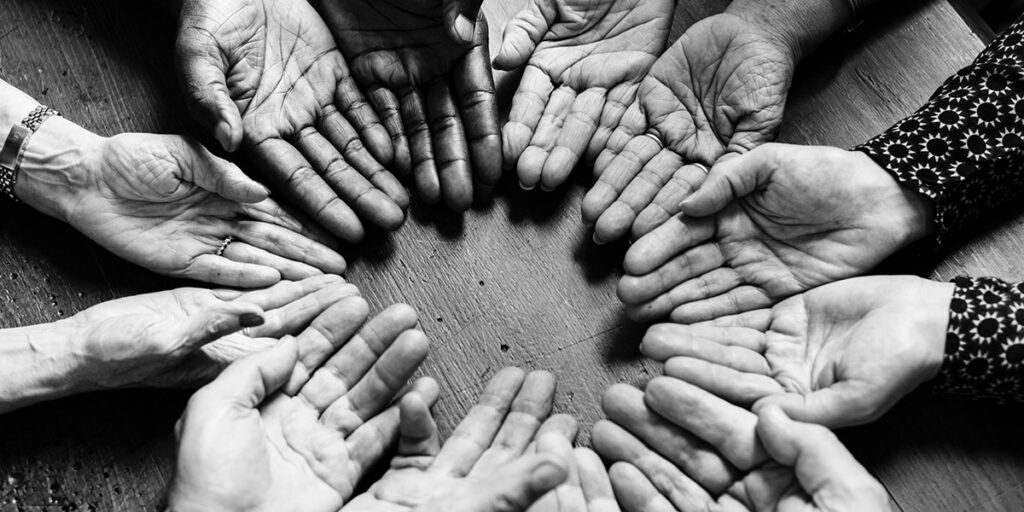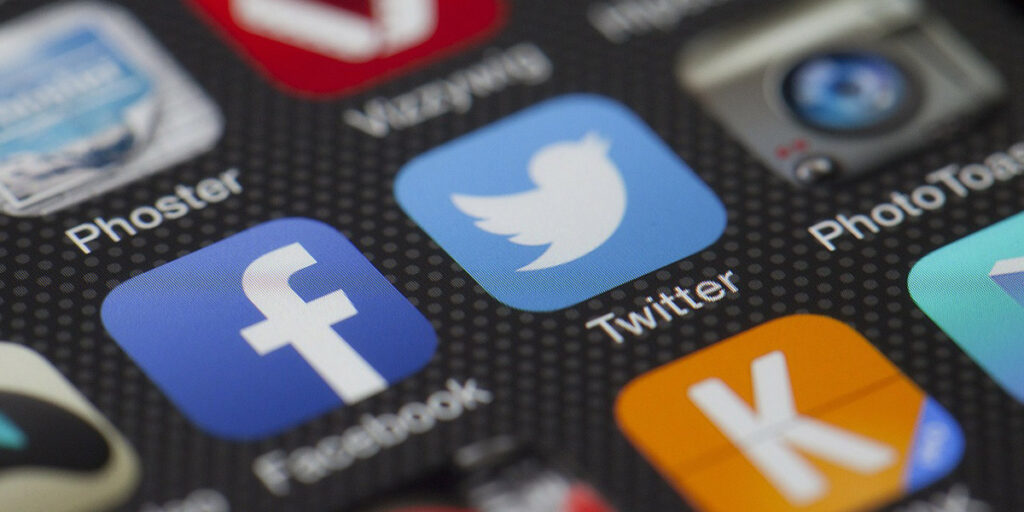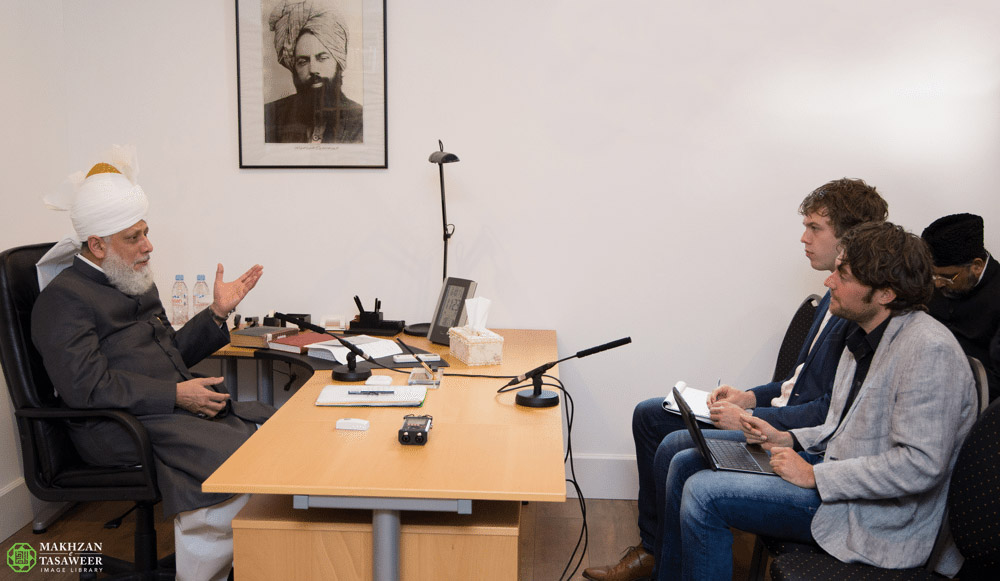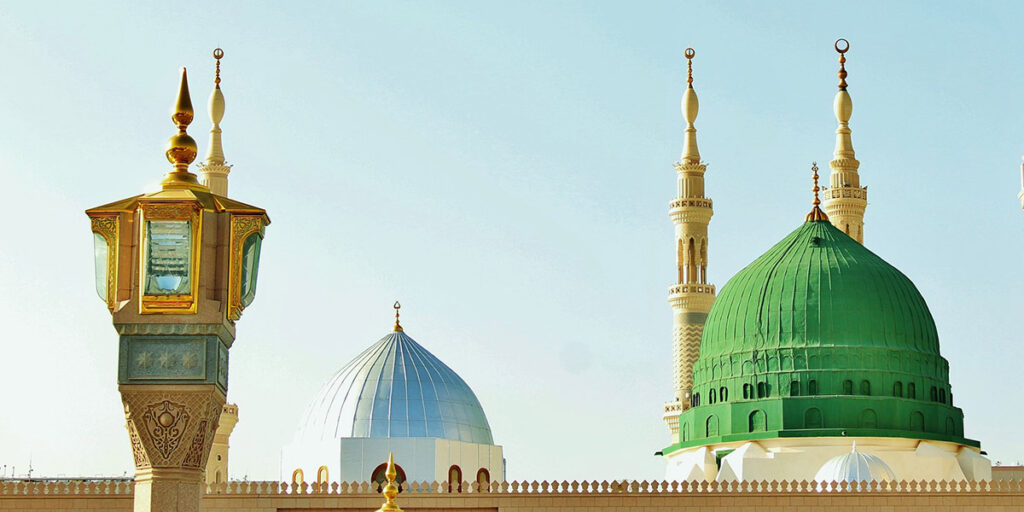by Rasheed Reno – Speech at Jalsa Salana USA 2019, Saturday July 13th

Over the last decade we have witnessed growing intolerance around the world. Hateful rhetoric used by extreme groups and politicians has grown significantly. Muslims have been experiencing this type of hatred at an increasing rate since the tragedy of 9/11. With the advent of social media, the rhetoric has only increased and has fooled many misinformed people into believing utter nonsense. In this regard, my personal situation is somewhat unique, I am a convert to Islam and the only Muslim among my extended family. I have relatives of various religious and political backgrounds. Most are Christians, but many do not have any religious affiliation. Some are pretty far to the left and some even further to the right. Unfortunately, some of them have fallen into this trap of hateful intolerance. Nowhere is this more visible than on social media. Several years back I had deactivated my Facebook account feeling that it was a waste of time. However, a few years ago it came to my attention that Anti-Muslim hate propaganda was being promoted by my own kin, so I felt compelled to reactivate it and respond. I have been able to tame the obnoxious propaganda to a degree, however, I still come across such posts every so often.
Consider the following post from Facebook shared by two of my relatives just a short while ago. It is a long post, so I will just share the first couple of lines:
~The real reason Thomas Jefferson owned a copy of the Quran~
A 232 Year History of our fight against Islam & why it is no longer taught in our public schools…
When Thomas Jefferson saw there was no negotiating with Muslims, he formed what is now the Marines …
Wow! Who would of known that the US Marine corp exists for the purpose of fighting Islam??? The post goes on to tell the story of the conflict with the Barbary States interwoven with this type of hate filled nonsense the whole way through.
Or how about this meme from just a few weeks ago:
“How stupid are we? We allow our government to flood our nation with Muslims, give them welfare for life (with multiple wives), and then tell us that we must not offend them “or we will go to prison”. Islamic immigration has destroyed every country in Europe, and will destroy both Canada and the US. Are we so stupid that we’ll stand by and watch this happen to our country?”
It’s not easy to see such blatant hate propaganda posted by family about you and your faith. Sadly, these posts demonstrate how ignorant and gullible so many in America are when it comes to stereotyping those who are different or that they know very little about.

In politics divisive attitudes are not confined just to just one side of the aisle, there is plenty of it on both sides. I often see posts from friends and family coming across my feed that speak out against bipartisanship. Sometimes they even consider any attempt to compromise with the other party a kind of betrayal, which only further polarizes the political landscape. Having this attitude towards bipartisanship is toxic. Refusing to compromise with a half or third of the country that disagrees with you is not constructive.
Separating yourself based on political views destroys any chance at fruitful dialogue and only ensures that those on the other side of the aisle never really understands your viewpoint. This type of approach has led to echo chambers where people only listen to those who hold a biased view. They listen only to the news sources that agree with their views and confirm their biases. Biased commentators that gloss over facts that don’t comply with their views or spin those facts to try and make them say what they want them to. On social media it becomes so extreme that unsourced claims are presented that aren’t even based on facts, but rather completely fake information. The anonymity of social media enables these people to go overboard and say things they wouldn’t normally say in person. Echo chambers seldom promote the idea of real dialogue and cooperation, but rather cast their opponents as evil and immoral. Far from cooperating with these “evil” people it becomes of the utmost importance to dig your heels in and oppose them at all costs. They must be feared not compromised with. And so, disagreement turns into hostility and then eventually extremism and violence.
Remember the whole “Creeping Sharia” nonsense? A perfect example of hate propaganda based on an irrational fear that cannot be substantiated in any way. Yet it influenced millions across America. There were even bills in several states that were actually voted on, without any real example of Muslims attempting to implement Islamic Sharia in the US legal system. With it, along with tons of other anti-Muslim hate propaganda, we saw a rise in hate crimes against Muslims. Muslim women assaulted and mosques attacked. Now we even see synagogues and churches being attacked. What has this country become when we can no longer feel safe in a house of God and have to beef up security?
It’s time for change. We need to have constructive dialogue instead of backing into our safe spaces where we can say whatever we want about others without being questioned. This starts by changing the way we speak to and about each other. We need to address one another with respect. Just because someone disagrees with you it does not make them evil. One thing that surprises me is how quickly some people jump to such an extreme, comparing others to the most murderous tyrants in history like Hitler or Stalin.
Likewise, abusive language doesn’t work. If you use harsh and abusive language against your opponent, you won’t convince them of anything. Any self-respecting person is going to block you out if you poison the well. At that point you are preaching to the choir and only trying to impress like-minded people. Don’t make it more about your ego than honest discourse. The Holy Qur’an says:
Call unto the way of thy Lord with wisdom and goodly exhortation, and argue with them in a way that is best. (16:126)

Arguing in a way that is best means to remain composed. It means we do so with dignity, kindness, and good intentions. The purpose of our discourse is to create understanding, not to create further dissension or satisfy our egos. It also means that we use reason instead of sticking with a position that defies logic. Sometimes another idea is better than our own, and sometimes there is more than one way to achieve the same result. People come from different backgrounds with different perspectives. A person from a rural area may have different views and experiences than someone from a city, just as people from different parts of the world may differ. What works in one place may not work so well elsewhere. It is important to try and understand those perspectives and treat one another with respect.
Echo chambers prevent one from understanding the other side’s point of view. They give biased commentary and misrepresent opposing views. Sometimes a view from an extremist is passed off as a majority view. In many cases, if we actually engage in dialogue with the person, we would understand their viewpoint. While we may not come to agreement, we may gain some understanding and respect for their views. A little empathy can go a long way. As Muslims we have seen this time and again where the extreme views of terrorists are cast as mainstream. If the people who fall victim to believing this took the time to reach out to us and understand what we actually believe, then they would not have unnecessary fears based on erroneous conclusions. Good discourse requires good listening.
Mudslinging is all too common in today’s discourse. Rather than debating the actual disagreements on their merits many seek to damage the reputation of their opponents to turn others away from them. Mudslinging and character assassination are not a path to civil discourse. I want to share a story about the Promised Messiah and founder of the Ahmadiyya Muslim Community, Hazrat Mirza Ghulam Ahmad(as), and his example in this regard.
In 1897 some of his opponents conspired to fabricate a charge of conspiracy to commit murder against him. A witness came forward, Abdul Hamid, who claimed that the Promised Messiah offered to pay him to murder Dr. Martyn Clark, a Christian Missionary who was a critic of Islam and the Promised Messiah. One of the witnesses called was Maulvi Muhammad Hussain who was a vociferous opponent of the Promised Messiah and would frequently make attacks against him. Not wanting to miss out on an opportunity, he willingly came forward to testify against the Promised Messiah as a character witness. During cross examination the defense attorney began a line of questioning that sought to attack his character. The Promised Messiah immediately stopped him. The lawyer indicated that it was in his best interest to do so, however, the Promised Messiah refused to denigrate his opponent and had complete trust that God would protect him. He preferred to stay focused on the matter at hand and not allow character assassination to affect the outcome. Ultimately, Abdul Hameed confessed to concocting the story at the behest of Dr. Clark and the false charges were dropped. Thus, the Promised Messiah was exonerated without slinging mud against a witness who was there for that very purpose.
The most important principle that we need to follow in our discourse is that of honesty. Sometimes spin doctors will stop at nothing and come up with the most ridiculous arguments. Exploring an argument is one thing, but when we spin an argument to try and stretch the truth it violates the principles of honesty. We must also avoid letting our egos get caught up in the discussion and push aside the truth in favor of winning an argument. It is human nature to want to be right and it can become easy to dig your heels in and stubbornly defend a point even when it becomes clear that we are wrong. Our ego will get in the way of being objective and we begin to look foolish. The Holy Qur’an warns:
‘… and restrain thy voice; verily, the most disagreeable sound is the braying of a donkey.’ (31:20)
Likewise, with stating things that we do not know to be true. With the Facebook posts that I shared, the people posting them had no idea if they were true and took no effort to verify them. Many of these internet memes have been debunked a dozen times by different fact checkers and a mere thirty seconds on Google would make that obvious. Yet either out of sheer laziness, ignorance, or simply wanting to believe something that is false, people just don’t bother to check.
Quite often there will be times when people are just not able to agree. When this occurs, then it is best for us to agree to disagree and leave it at that. We should avoid allowing our discourse to become heated. If we start getting angry, then it is time to walk away. Saying things in anger is seldom productive and you are likely to say something you will regret. There are people who love to argue, but don’t necessarily believe what they are saying. There are countless internet trolls out there that get a thrill out of getting a rise out of you. When you lash out in anger then they have achieved their objective. Some, as we saw in the 2016 election, very deliberately try to trigger people and create dissension. You will never get an honest dialogue with such people, once that is clear just leave it alone. There isn’t much point wasting the effort. The Qur’an tells us to be:
… those who walk on the earth in a dignified manner, and when the ignorant address them, they say, ‘Peace!’ (25:64)
Often what is lost in today’s discourse is a sense of compassion for others. Many people have become so preoccupied with vilifying their opponents that they seem to forget that they are even human. The Holy Qur’an sets out:
Verily, Allah enjoins justice, and the doing of good to others; and giving like kindred; and forbids indecency, and manifest evil, and wrongful transgression. (16:91)
These are timeless principles that teach us how we should behave towards others. The Qur’an is telling us that not only should we set out with the very standard principle of justice and fairness to others, but we should elevate that to doing good to others. It then enjoins us to go beyond that to highest level of conduct with treating others like they are the next of kin. Rather than vilifying others we should reach out to them with compassion. Even those who are hostile towards us or differ with us, we should not behave indecently with any type of harshness or abuse. The Qur’an forbids us from engaging in evil acts even if those acts are committed against us first. And it absolutely forbids us to initiate any wrongful transgression towards anyone.
The Prophet Muhammad(sa) was always willing to look past the hostility of his adversaries. One such adversary was a man named Abdullah bin Ubayy, who was a leading chief in the town of Madinah. When the Prophet Muhammad(sa) migrated to Madinah from Mecca in order to escape intense persecution, the town of Madinah received him with open arms. Madinah had been torn by decades of tribal feuds and saw in the Prophet a man who had a history of resolving conflicts and so they made him the leader of the city. Abdullah bin Ubayy felt as if he had been stepped over and became hostile towards the Prophet, becoming a leader of the disaffected of the city. Although he outwardly professed to be Muslim, he became known as the chief of the hypocrites because he took every opportunity to undermine the Prophet and the Muslims. His long list of transgressions included abandoning the Muslims in the defense of Madinah and pulling away a third of the army leaving them vastly outnumbered and in a precarious position. He spread malicious rumors about the Prophet and his wife, and constantly undermined the peace and security of Medina which was being attacked from all directions. It reached a climax when he derided the Prophet declaring “Now wait till we return to Medina; then the most honored one among us shall surely expel the one meanest among us.’ The Prophet’s companions were incensed by this. Abdullah bin Ubayy’s own son came to the Prophet and said that if he wished him to be executed, that he, his own son, should be the one to do it. However, the Prophet’s reply was “Have no fear. So long as your father remains with us, we shall make our companionship pleasant to him.” After a few years he passed away. The Prophet went to lead his funeral prayer, but his companions objected repeatedly, citing the many evil acts that he had committed against them. The Prophet stated, “God gave me a choice, I was told to plead forgiveness for the hypocrites or not. But even If I plead 70 times, Allah would not forgive them. If I know that I can exceed 70 times, I will do so.” So, he led the funeral prayer and even provided his own shirt as a shroud to wrap the body in. We see in his example that the Holy Prophet held no malice against those who were the most vicious towards him. He was constantly seeking to bring peace to those around him by remaining civil and not letting the way others treated him compromise his principles.

Al-Masjid an-Nabawi (The Prophet’s Mosque) originally built by the Holy Prophet in the city of Medina.
It is unfortunate that many acts of goodness and compassion are often drowned out by evil acts of hate. But sometimes a single act of compassion can become a path to understanding in a time of conflict and hurt. Muslims worldwide were horrified by the recent terrorist attack on a mosque in New Zealand and the large number of innocent lives taken in this tragedy. But then something happened that we are not accustomed to seeing. It was as if the entire nation of New Zealand reached out with sympathy and compassion, huge numbers of people gathered throughout the country to lay flowers outside mosques and show their support. Millions of dollars were donated to the affected families, and the government covered the funeral expenses. The call to prayer was played on national TV before the Friday prayers. Non-Muslim girls wore hijab to make Muslim girls feel safer. Laws against gun violence and hate speech were passed within days. We saw the loving compassion that Prime Minister Jacinda Ardern responded with, visiting the Muslim Community to provide love and support, hugging and shedding tears with them. The Muslim community did not ask for any of this, but we were touched and immediately knew that this is the type of compassion and leadership that the world needs more of today. If the intention of the terrorist who committed this evil act was to kill some people, then he succeeded. But if his intention was to divide the people of New Zealand and create hate against Muslims, then he failed miserably.
It is this spirit of compassion that the Promised Messiah proclaimed as the model for Ahmadi Muslims to follow. He wrote:
“The principle to which we adhere is that we have kindness at heart for the whole of mankind. If anyone sees the house of a Hindu neighbor on fire and does not come forward to help extinguish the fire, most truly I declare that he does not belong to me. If anyone of my followers, having seen someone attempting to murder a Christian does not endeavor to save him, I most truly declare that he does not belong to us.” (Siraj-e-Muneer, Roohani Khazain V. 12 p 28)
In order to bring change, we have to make this type of compassion the norm. We must turn away from those who are vindictive and seek division and not promote their hostility by repeating their words or giving them attention. His Holiness, Mirza Masroor Ahmad, head of the Ahmadiyya Muslim Community, has stated that “Publicity is the oxygen sustaining most terrorist or extremist groups.” He also said, “Instead of conflict and division, we desire for people to live alongside one another in peace and harmony. We seek to build bridges of love that unite all mankind.”
Discourse and debate are important for the advancement of humanity. The founding fathers of our great nation recognized this, and it is at the heart of the first amendment. It is a means through which we advance and through which we can overcome great obstacles. However, the benefits that we get from productive discourse are diminished when it is not accompanied by high morals and good behavior. If we include honesty, civility, empathy, and compassion in our discourse, then we will take a great step toward ending extremism on all sides and living together in peace. I thank you for taking the time to come here today, and I pray that together we can have a positive impact on civil discourse and bring people together and create better understanding.